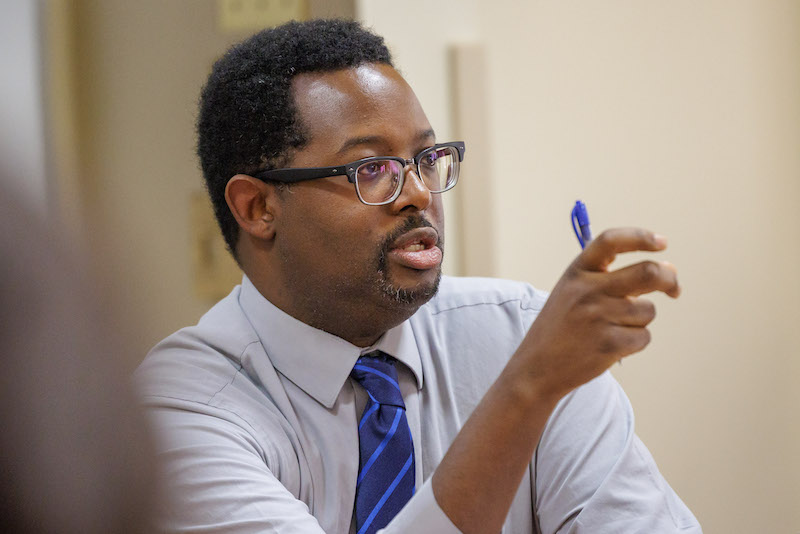 About this Episode:
About this Episode:
In this episode of Global Stage, Olukunle Owolabi, associate professor of political science at Villanova University, expands upon the background, methods, and historical evidence utilized for his recent book "Ruling Emancipated Slaves and Indigenous Subjects: The Divergent Legacies of Forced Settlement and Colonial Occupation in the Global South," published by Oxford University Press (2023). In an interview with Kellogg Doctoral Student Affiliate Joséphine Lechartre, Dr. Owolabi describes in depth the divergent development trajectories of former settled and occupied colonial governments, including cases from North Africa and the Caribbean Islands.
Show Notes:
Welcome to Global Stage, a podcast highlighting academic and policy-oriented international research on democracy and human development. Global Stage is brought to you by the Kellogg Institute for International Studies, part of the Keough School of Global Affairs at the University of Notre Dame. Your host today is Kellogg Doctoral Student Affiliate Joséphine Lechartre, a PhD candidate in peace studies and political science at the University of Notre Dame.
Joséphine is joined by Olukunle Owolabi, an associate professor of political science at Villanova University. He teaches courses in comparative politics, African politics, comparative democratization, and colonialism. His research examines developmental legacies of forced settlement and colonial occupation in the global south and has been published in comparative politics. Dr. Owolabi is also a longtime member of the Kellogg community as a former Kellogg Institute dissertation year fellow (2008-09) and a former visiting fellow (spring 2016).
To begin, Dr. Owolabi shares that he became interested in this topic of legacies of forced settlement in the south based on his childhood experiences and family background. Both of his parents grew up under British Colonial rule with his father from Nigeria and his mother from Trinidad in the Caribbean. They both moved to Canada and all of their children were born there, but then moved to Nigeria to establish a medical hospital when Dr. Owolabi was age four. His early childhood memories are heavily impacted by those experiences where he saw extreme contrast between Nigeria and Trinidad. Both countries gained independence around the same time, but Trinidad was performing better. In Trinidad, you could drink tap water while in Nigeria you had to boil it. In Nigeria, you had to take anti- malarial medication but in Trinidad, it had been eradicated. There are frequent power cuts in Nigeria, but there aren’t in Trinidad. This development gap hadn’t been explored yet and this sparked his PhD and book, “Ruling Emancipated Slaves and Indigenous Subjects: The Divergent Legacies of Forced Settlement and Colonial Occupation in the Global South.”
Next, he talks about how his book is built on archive evidence and sheds light on forced settlement, which is a pattern of colonialism where European colonists established agricultural plantations to grow crops. They brought in slaves to work this and this goes on until the 19th century and the abolition of the slave trade in 1807. He traces the developmental legacy in three different colonial empires including religious and property rights. Haiti is the glaring exception to the rule where this country was punished by France because the slaves were emancipated. France refused to recognize Haiti's independence and Haiti couldn't apply for loans or legally get trade agreements. All other countries went along with this, so Haiti became more and more impoverished. Dr. Owolabi also discusses how his book is based heavily on European archive sources like colonial office reports and bluebooks, or published records of colonies. Finally, he talks about his excitement about researching subnational variations in the near future.
Links:
Learn more about Olukunle Owolabi
Learn more about his book Ruling Emancipated Slaves and Indigenous Subjects
Learn more about the Kellogg Institution for International Studies
Listen
Listen below, ask your smart device to “play Global Stage Podcast,” or find us on:
Apple | Spotify | Stitcher | iHeartRadio | TuneIn





